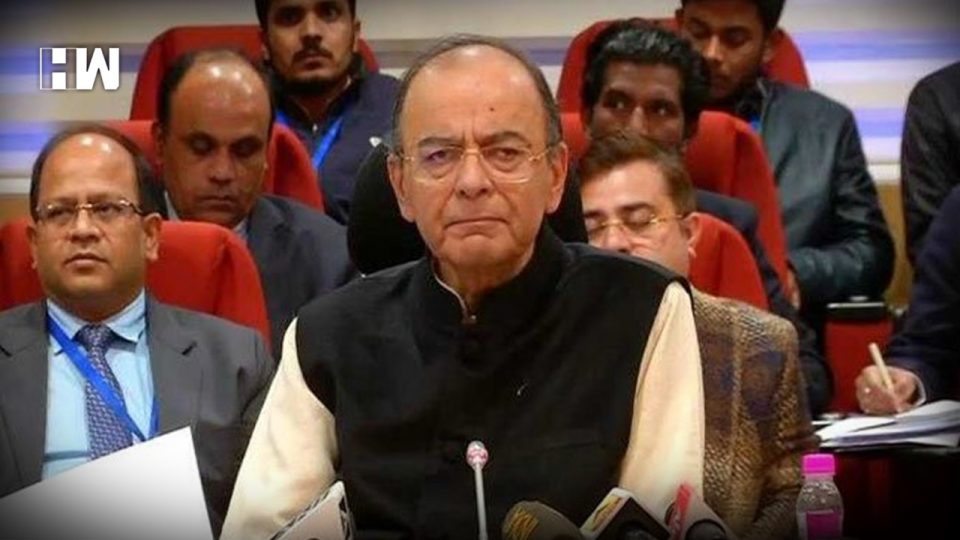The fact that the GST collections have failed to meet their target, month after month and that the unrealistic income tax collection targets are being met through rough and harsh collection tactics even in the matter of disputed taxes in appeal (and by refusing to give refunds to tax payers), that the corporate performance and earnings have been poor, and that India’s GDP growth declined again in the previous quarter, only means that the Indian economy is yet to get into a durable and sustainable growth momentum. Growth of the economy remains patchy and has been largely spurred by government spending. Private sector investment is missing. The estimated GDP growth for the current FY ending on 31.3.2019 at 6.98% means that India would have recorded its slowest growth in the last five years. The fact is that the private sector, which is the major growth driver has not yet jumped into the game and that the growth has been largely pump primed/funded by government spending. For example while India’s GDP in 2017-18 grew by 7.17%, the government expenditure grew by 14.97%. But then government expenditure constitutes a mere 10-11% of India’s GDP and is no substitute for private consumption expenditure and investment, which are largely indifferent at present.
The fact is that the government needs to desperately support economic growth by way of private sector investment, particularly in order to create new jobs, which is a key issue in the present elections. For this, the government has been fervently giving loans to all segments of enterprises. It has recapitalised banks to the tune of almost ₹ 80,000 crores this year, by putting in fresh capital in sick/bankrupt banks to enable them to resume lending. The government has disbursed over ₹8 lakh crores to non corporate/micro enterprises, under its MUDRA loan scheme so far and it has already sanctioned over ₹ 35,000 crores to MSME enterprises, under its much touted 59 minute MSME loan scheme so far. Its targeted sanctions under the MSME scheme, by March 31st, are reported to be over ₹ 1 lakh crores.
The fact is that it is very easy to dole out loans, which every reckless entrepreneur will happily take. But the real challenge is its repayment, particularly when economic growth is uncertain and corporate performance and profits have been poor. If the big companies are recording receding profits as was visible in the last quarter too, then the performance of their supporting ancillary units in the MSME sector too is bound to be so. So while there is already a huge NPA overhang in the MSME sector, at over at least ₹ 5 lakh crores, due to which RBI has shifted the recognition of MSME NPAs of banks to March 2020, yet on the other hand, fresh loans are being given to this sector, under what we call political and election compulsions. There is a clear build up of unreported NPAs in India’s banking system, in the MSME and MUDRA sectors, despite the fact that the earlier NPA banking crisis remains unresolved.
That gets us to the larger and disturbing picture. Every government bequeaths/passes on an empty treasury and a mountain of rotten bank loans ie. NPAs, due to politically driven lending, to the next succeeding government. It was the Congress that created the present NPA crisis, passing on NPAs of over ₹ 15 lakh crores to the NDA government, thanks to the reckless bank lending in its ten years of the UPA rule, when within a short tenure of five years between 2008 to 2013, aggregate bank loans of PSBs, shot up from ₹ 18 lakh crores to ₹ 52 lakh crores. It also left an empty treasury and lots of unpaid bills, running into tens of thousands of crores. The MUDRA loan portfolio of over Rs.8 lakh crores, the 59 minutes MSME loans which will soon run into lacs of crores of rupees and the recapitalisation of bankrupt banks for their lending resumption, as also the postponed recognition of NPAs in the MSME sector, running into lakhs of crores apart from the massive misuse of LIC funds, are the mountain of bad loans that the BJP too is creating for the next government to tackle, apart from emptying the treasury through numerous poll sops.
As an independent media platform, we do not take advertisements from governments and corporate houses. It is you, our readers, who have supported us on our journey to do honest and unbiased journalism. Please contribute, so that we can continue to do the same in future.

